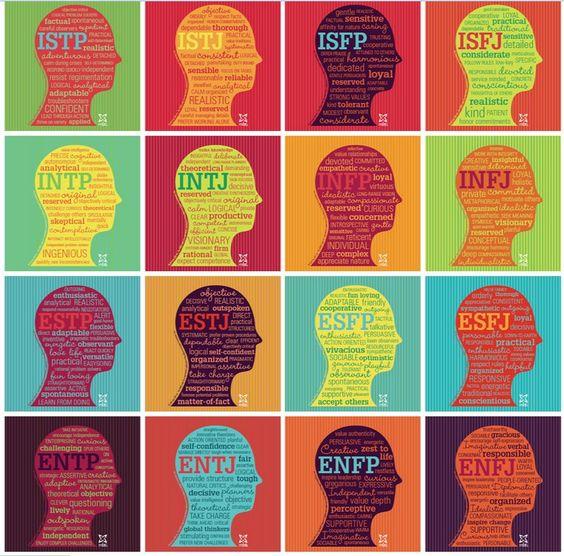Personality types are useful to know, whether for your work environment or just for a better understanding of the people around you. Which one are you?
As human beings, we sometimes differ a lot. It’s great to celebrate and cherish the differences in our personalities, but it’s beyond helpful to learn about distinct personality traits (including your own) for advancing in relationships, career, and your well-being.
 photo: Pinterest
photo: Pinterest
What is MBTI?
Myers-Briggs Type Indicator is a self-report-type questionnaire created to help identify your personality type, as well as your strengths and preferences. Katherine Briggs and her daughter, Isabel Myers, developed it, and it is based on their work on Carl Jung’s personality types theory. Today, the MBTI is the most-used instrument in psychology. Also, detectives, managers, and others rely on personality types and their usefulness in assessing people.
How does MBTI work?
Myers and Briggs were certain the personality types will help people get more acquainted with their preferences, choose their careers wisely and live more well-rounded, happier lives. Nowadays, it’s very easy to take this test, and the results are roughly divided into 16 personality types, based on 4 scales:
- Interaction with environment (extrovert (E) – introvert (I)) – this dichotomy is a little more difficult to observe since we get on both sides of the spectrum, but we all lean more towards one side than the other. Extroverts generally feel comfortable interacting with people and are more action-prone, while introverts are inward-turned, thought-oriented and recharge by spending time alone.
- Gathering information from the world (intuitive (N) – observant (S)) – Intuitive people are more future-oriented and imaginative. Dominantly observant types, however, are reality-based. They touch on things that are “in front of them,“ such as facts and details, rather than exploring future possibilities.
- Coping with emotions (feeling (F) – thinking (T)) – Dominant-feeling individuals are sensitive and able to express their emotions well. Also, they tend to take emotions and others into account when making a decision. Thinking-dominant people are the opposite – they depend on objective information rather than the feelings.
- Dealing with the outside world (judging (J) – prospecting (P)) – Judging types love a well-prepared course to go on. They tend to make firm decisions and love their structure. Prospecting ones, on the other hand, are easier to adapt and flexible in making decisions.
Finally, here are the 16 personality types.
Architect – INTJ
Logician – INTP
Commander – ENTJ
Debater – ENTP
Advocate – INFJ
Mediator – INFP
Protagonist – ENFJ
Campaigner – ENFP
Logistician – ISTJ
Defender – ISFJ
Executive – ESTJ
Consul – ESFJ
Virtuoso – ISTP
Adventurer – ISFP
Entrepreneur – ESTP
Entertainer – ESFP
What personality type are you, Radasses? Also, what do you think about such personality tests? Do you resonate with them or not? We would love to hear your results and opinions in the comments.








